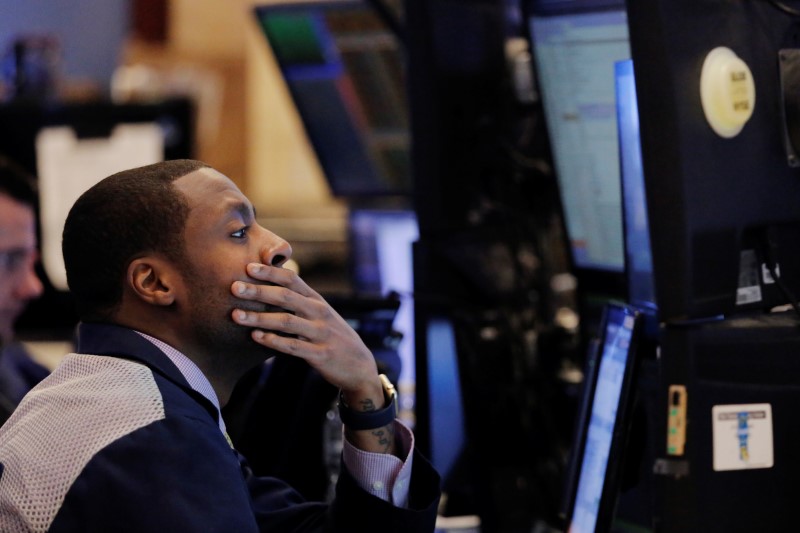Market relief, First Citizens buys SVB assets, Ma returns – what’s moving markets
2023.03.27 06:39

© Reuters.
By Geoffrey Smith
Investing.com — Markets breathe a sigh of relief as a weekend passes without a major banking disaster. The FDIC takes an estimated $20 billion hit on resolving Silicon Valley Bank. and Alibaba’s Jack Ma returns to China after a year away.
1. First Citizens buys SVB’s loans
Global markets are breathing a sigh of relief after the first weekend in three weeks to have gone by without a major upheaval in the global banking sector. Germany’s Deutsche Bank (ETR:), which was at the heart of Friday’s volatility, has led what can only be described as a dead-cat bounce overnight in Europe, whose weakness is a clear sign that investors continue to treat the sector with caution.
Elsewhere overnight, Saudi National Bank replaced its chairman, whose ill-judged comments fast-forwarded Credit Suisse’s slow-motion train wreck.
In the U.S., meanwhile, Raleigh, N.C.-based First Citizens BancShares (NASDAQ:) agreed to buy most of Silicon Valley’s loan book and securities – and assume all of its deposits – from the Federal Deposit Insurance Corp., which estimated that winding down the rest of the failed bank will cost its deposit insurance fund $20 billion.
The FDIC is having to hold on to nearly half of SVB’s assets, but will receive up to $500M in equity instruments in First Citizens as part of a scheme to share losses and profits from the asset recovery process.
2. Euro credit slows sharply but German Ifo hits 13-month high
The weakness of the Eurozone bank bounce can partly be explained by stark evidence of the recent improvement in their fundamentals plateauing out. Private-sector credit in the Eurozone grew at only 3.2% – the slowest rate in two years – in February, as successive interest rates took a delayed toll on lending. Loan growth to non-financial corporates slowed to 5.7%, its lowest in 10 months.
The figures are the latest evidence that interest rate hikes in Europe and the U.S. are tightening financial conditions, a process that is likely to be made worse as banks’ own risk appetite weakens in the wake of the SVB and Credit Suisse collapses.
There was better news from the Eurozone’s largest economy. Germany’s closely-watched delivered a rise in the Business Climate index to its highest since February last year, with the expectations component picking up particularly sharply.
3. Stocks set to open higher; Chinese tech ADRs in focus as Ma returns home
U.S. stock markets are set to open higher later and are due for a day of sentiment-driven trading in the absence of major economic data or earnings.
By 05:25 ET (09:25 GMT), were up 102 points, or 0.3%, while were up by a similar amount and were up by 0.1%. Despite the volatility in the banking sector, all three major cash indices had notched gains of between 1% and 2% last week.
Stocks likely to be in focus later include Chinese ADRs, after the much-publicized return of Alibaba (NYSE:) founder Jack Ma to China. Ma had been away for over a year, in what many had seen as a precaution against his arrest as part of the Communist Party’s crackdown on over-powerful tech barons. His return is accordingly likely to be seen as something of a rapprochement between business and politics.
4. Putin deploys tactical nukes to Belarus
Russian President Vladimir Putin said he would deploy some of the country’s tactical nuclear weapons arsenal to neighboring Belarus, ratcheting up the tension on the borders of Ukraine.
The move comes less than a week after Chinese President Xi Jinping – who has publicly warned Putin about the risks of nuclear escalation – left Moscow with warm words of support but no major deals to boost either Russia’s war effort or its struggling economy.
Kyiv said it will seek an emergency meeting of the UN’s Security Council to counter Russia’s “nuclear blackmail”, while EU foreign policy chief Josep Borrell said that Brussels was ready to impose new sanctions on Belarus if Minsk hosted Russian nuclear weapons.
5. Oil drifts as China industry labors
Crude oil prices drifted in overnight trading after more underwhelming data from China suggesting that the initial bounce to commodities from the country’s reopening has played itself out.
By 05:35 ET, futures were up 0.5% at $69.59 a barrel, while was up 0.5% at $74.95 a barrel.
Earlier, China’s statistics office had said that were down 23% on the year in the first two months of 2023.








